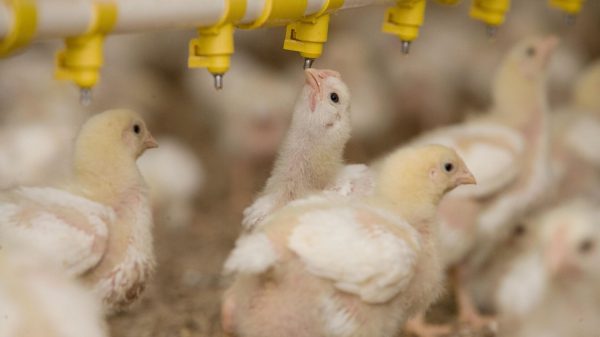 Russian President Vladimir Putin's energy war has cast doubt on the energy security of Ukraine's western supporters. Photo: GAVRIIL GRIGOROV/SPUTNIK/AFP via Getty Images
Russian President Vladimir Putin's energy war has cast doubt on the energy security of Ukraine's western supporters. Photo: GAVRIIL GRIGOROV/SPUTNIK/AFP via Getty Images
Engineering crews and cranes have already arrived at Drax Power Station in Yorkshire to dismantle two of the country's last remaining coal-fired power plants.
Over the past decade, four of the company's six coal plants have been converted to fire wood chips, and only two of them can run on coal.
However, Selby's coal-burning shutdown may now be delayed for a second year in a row as the National Grid looks to ensure Britain's lights stay on this winter.
The grid confirmed on Thursday that this will happen. is negotiating with Drax to keep the coal blocks running until April 2024 to once again provide the country with an additional source of backup power.
This is the latest example of how Vladimir Putin's energy war continues to upset the British economy. attempts to phase out King Coal.
“Dirty” fuel was criticized by Boris Johnson just two years ago at the Cop26 climate conference, and the government has promised to phase it out completely by the end of 2024.
The promise turned out to be easier said than fulfilled, as the reality of the war in Ukraine runs counter to the best of intentions.
After Russia's invasion of Ukraine, Moscow cut gas supplies to Europe, forcing countries including the UK to consider coal as a potential backup option for power generation in the event of a power shortage.
Although the UK has never been a major direct importer of Russian gas , she uses gas from European storage tanks throughout the winter, leaving her vulnerable to supply disruptions on the continent.
1606 UK: weak gas supplies
The Power of Drax The station is among several facilities whose lifespan has been extended since Cop26, helping to keep the country's electricity supply going through times of stress.
One of four coal blocks at the Uniper Ratcliffe-on-Soar power plant. the Nottinghamshire station was originally scheduled to close in September 2022, but will now remain open until September 2024.
Similarly, the EDF West Burton A power station in Lincolnshire was due to be decommissioned last September, but worked until April.
The power grid paid all three power plants to stay on standby over the past winter to provide backup electricity, giving the bosses a «last resort» option to prevent potential outages.
In this case, they were heated seven times, but only used once, in early March, with unforeseen expenses on the Grid — and eventually billed by the payers — around £400m.
However, coal is in demand not only in winter. The power grid has also relied on the Ratcliffe plant to boost supplies this summer, relying on the facility this week as temperatures skyrocket and households turn on the air conditioning.
The potential of coal-fired plants will again come to the rescue. year. much less in the winter simply because businesses close.
Despite requests from Energy Security Secretary Grant Shapps, EDF is pushing for the closure of West Burton A.
Meanwhile, one of Drax's two remaining Selby coal units is being dismantled and staff are about to retire, making it «unlikely but not impossible» to bring the remaining unit back again, according to a company source.
The unit that was on standby at the Uniper power plant in Ratcliffe, will now operate commercially as announced in January, making it unavailable as a contingency measure this winter.
However, this is all happening at a time when the UK's electricity supply is becoming increasingly scarce.
1606 britain small margin of error
A preliminary forecast released by National Grid on Thursday suggests an estimated surplus of 4.8 gigawatts, or about 8% of the total capacity, during peak demand this winter.
< p>However, this figure is subject to the health of the Ratcliffe and the fact that the UK may be dependent on importing electricity from Europe when it needs it most.
As in the past winter, the grid admits it cannot rule out the possibility of controlled blackouts in the worst case, when a cold snap will cause gas supply disruptions across Europe.
The UK has far fewer natural gas reverses than other European countries.
“Other things being equal, the system is in good health,” says Jake Rigg, director of corporate affairs at the National Power System Operator (ESO).
“But if any of these risks materialize further, for example in the event of a shortage of gas in Europe or in the UK, this could have a significant impact on the British energy system.
“The general message [is not] that we we think everything is fine. We operate on the assumption that there is a significant risk. And we are taking all possible mitigation measures.”
Katherine Porter, energy analyst and founder of consulting firm Watt Logic, says the loss of the Drax and West Burton A coal blocks would require about 2 gigawatts. generating capacity at a time when the country cannot afford it.
In the coming years, other factors will also limit supply, including the expected closure of the Hartlepool and Heysham 1 nuclear power plants, which together provide 2 more gigawatt, in 2026.
Their service life has already expired. extended and cannot be repeated.
“The really important question here is what are we going to do next winter?” says Porter.
“By law, all existing coal-fired power plants must be closed next year, including Ratcliffe. So yes, you can try to reserve coal blocks again for this winter.
«But even if you manage to do it this winter, what's next?»
2105 2105 Electricity generated by source_UK
Even 30 years ago, coal was burned to provide 60 percent of the country's electricity needs, but today, according to the International Energy Agency, it provides less than 5 percent.
Today it has been replaced by natural gas, which was used to meet about 40 % of UK needs in 2021, and a blend of renewable energy and biomass.
The country's growing reliance on less polluting but inherently intermittent sources such as wind and solar has its drawbacks .
They became known in December last year, when what the Germans called «Dunkelflaute» hit Britain.
Due to thick, heavy clouds and little or no wind, the capacity of wind farms has declined, and darker weather has prompted households to turn on lights and increase electricity consumption in the previous days.
Similarly, the Grid ordered Britain's coal-fired power plants to start up in March amid another bout of light winds coinciding with a cold snap.
In addition, there were concerns that strikes at EDF's nuclear power plants in France could reduce the amount of electricity available for import via interconnectors.
Porter believes situations like this highlight why the UK should delay its coal phase-out beyond 2024, giving the Grid some extra breathing room when power becomes scarce.
“The Government is the only organization that could change that [phasing out electricity in 2024], and I really think they should get in there and do it, because from an environmental standpoint, one coal plant doesn't move the needle,» she adds.
“It won't matter between climate change and non-climate change, especially when countries like China build new coal-fired plants, give up.
«And this contributes greatly to energy security, including in the summer, as we recently saw.»






















































Свежие комментарии